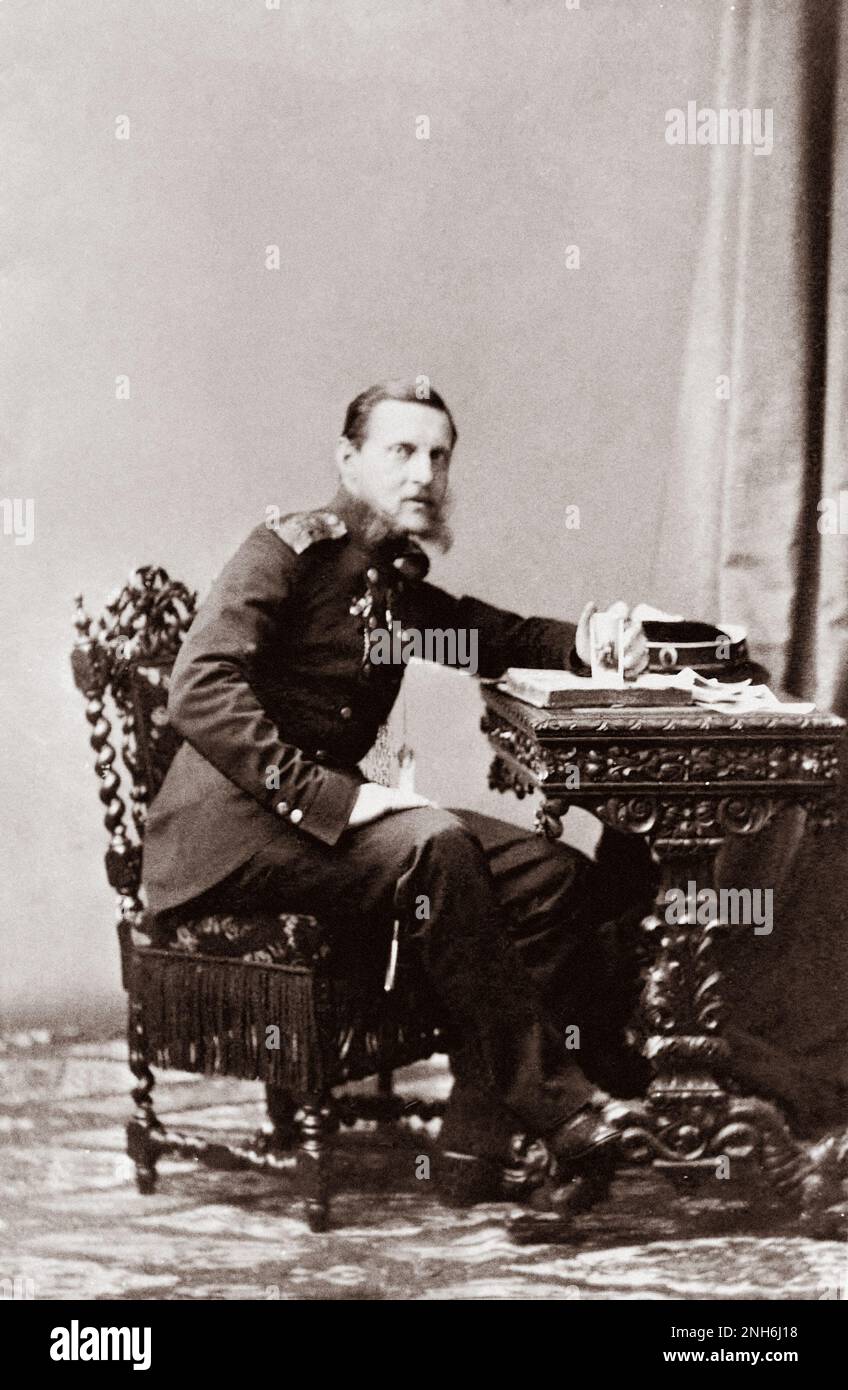Vintage photo of Grand Duke Konstantin Nikolaevich, Son of Emperor Nicholas I. It shows the grand duke in a semi-profile view, wearing naval uniform sitting at a writing desk. The grand duke was the second son of Emperor Nicholas I (1796--1855) and Empress Alexandra (1798-1860). Trained in naval sciences, languages, mathematics, and navigation by Count Fedor Petrovich Litke (1797-1882), a navigator, geographer, and Arctic explorer, Konstantin was appointed to the State Council in 1850. In 1853 he was promoted to admiral and made head of the naval department. In that capacity he presided over t

Image details
Contributor:
mccool / Alamy Stock PhotoImage ID:
2NH6J18File size:
28.4 MB (1.6 MB Compressed download)Releases:
Model - no | Property - noDo I need a release?Dimensions:
2544 x 3897 px | 21.5 x 33 cm | 8.5 x 13 inches | 300dpiDate taken:
23 January 2019More information:
This image is a public domain image, which means either that copyright has expired in the image or the copyright holder has waived their copyright. Alamy charges you a fee for access to the high resolution copy of the image.
This image could have imperfections as it’s either historical or reportage.
Vintage photo of Grand Duke Konstantin Nikolaevich, Son of Emperor Nicholas I. It shows the grand duke in a semi-profile view, wearing naval uniform sitting at a writing desk. The grand duke was the second son of Emperor Nicholas I (1796--1855) and Empress Alexandra (1798-1860). Trained in naval sciences, languages, mathematics, and navigation by Count Fedor Petrovich Litke (1797-1882), a navigator, geographer, and Arctic explorer, Konstantin was appointed to the State Council in 1850. In 1853 he was promoted to admiral and made head of the naval department. In that capacity he presided over the disastrous Russian naval operations in the Crimean War, after which he oversaw the modernization of the navy, its education system, and its bureaucracy. Konstantin was involved in the emancipation of the serfs in Russia in 1861. From 1862 to 1864, he served as viceroy of Poland, where he survived an assassination attempt on his second day in office. Back in Saint Petersburg, he chaired the State Council for 16 years. His wife was born Princess Alexandra of Saxe-Altenburg; in 1848 upon her conversion to Russian Orthodoxy and marriage to Konstantin, she became Grand Duchess Alexandra Iosifovna.